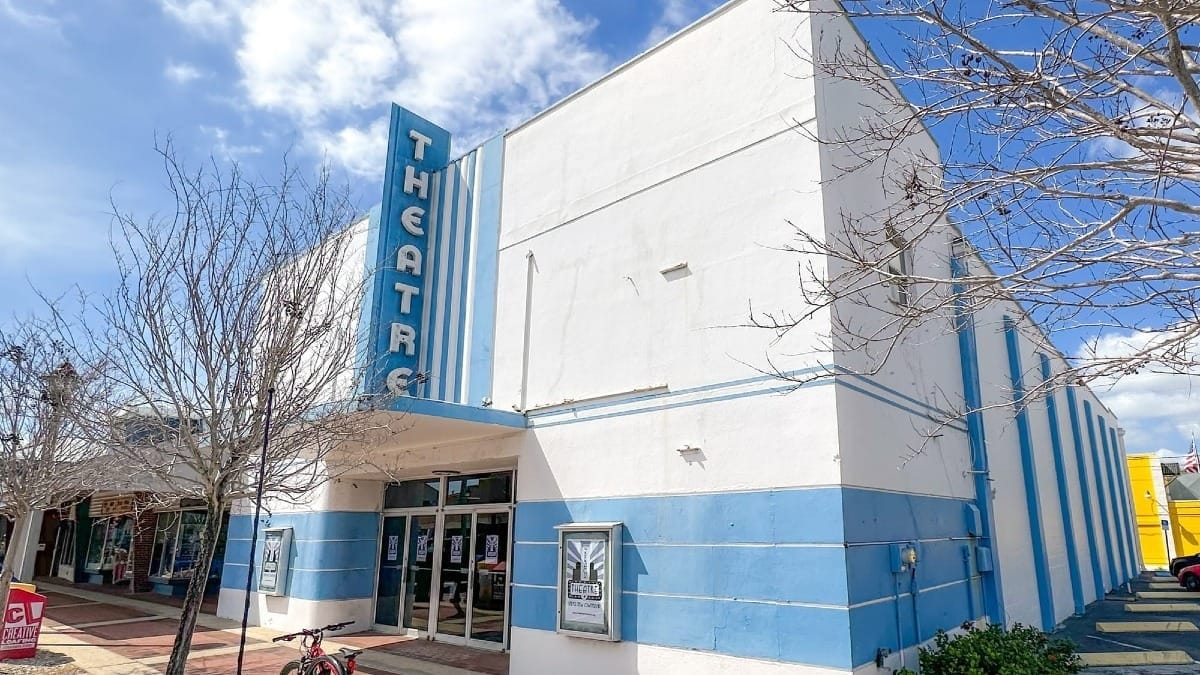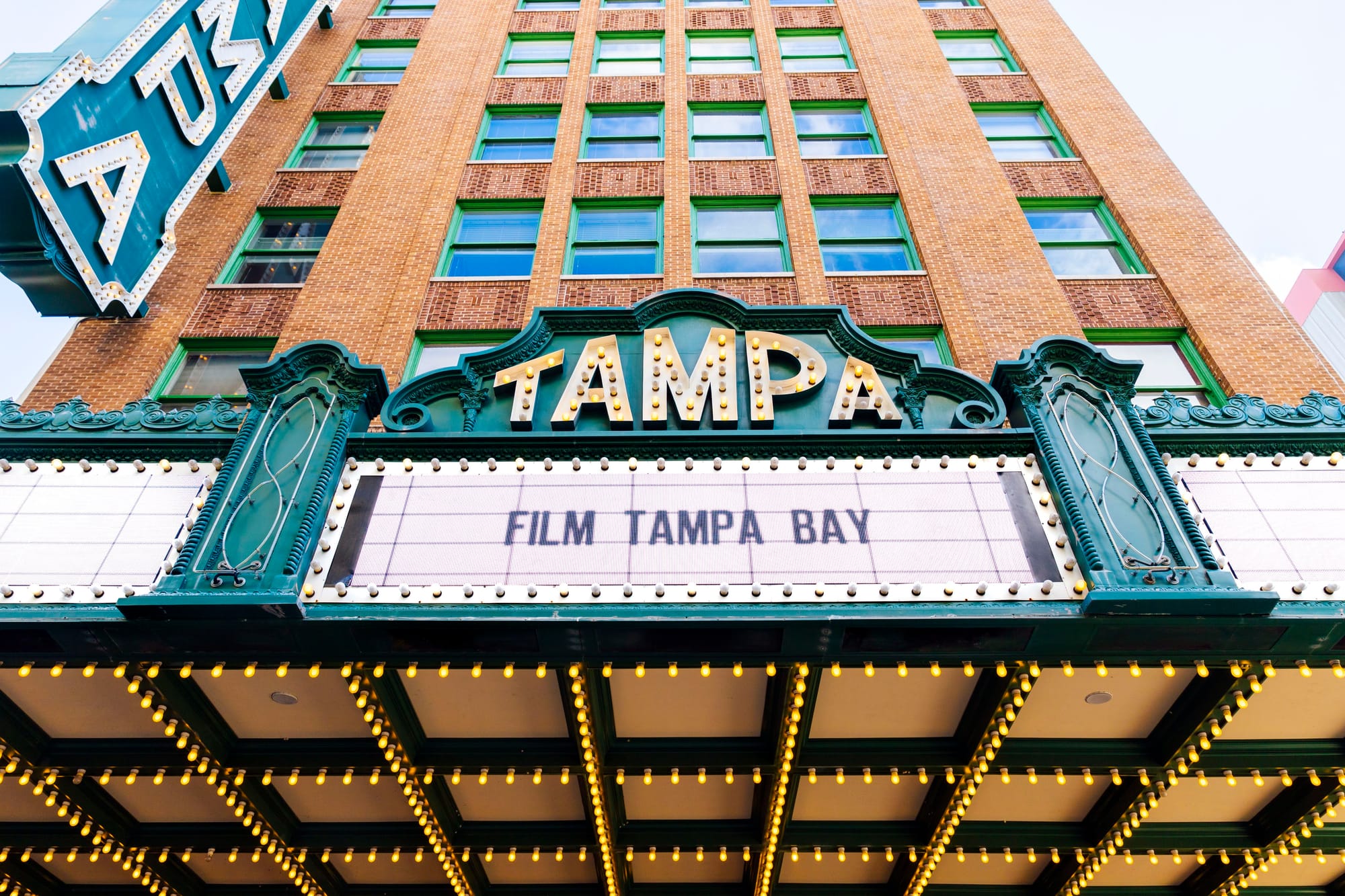A Comeback Story: Independent Movie Theaters Hold the Line in Tampa Bay

by Avery Anderson
After more than a decade in the dark, St. Pete Beach’s historic Beach Theatre will reopen on July 18, 2025, with a special screening of a new documentary chronicling its own story. Produced by Lunar Speedboat Productions, the film marks the start of a new chapter for the beloved single-screen cinema, shuttered since 2012.
“It’s surreal that we’re finally here,” says Hannah Hockman, Executive Director of the Beach Theatre and the driving force behind its revival. “This theater has always meant more than just movies. It’s about bringing people together.”
The Beach Theatre’s return is the centerpiece of a larger story unfolding across Tampa Bay, where independent movie theaters are navigating industry headwinds while holding fast to their community roots.
The Beach Theatre: St. Pete’s Little Cinema That Could
For locals, the Beach Theatre’s marquee has long symbolized the charm of arthouse and indie film culture. After narrowly avoiding demolition in 2021, the theater’s comeback has been years in the making.
Hockman, who was among the first to bid on the building during its uncertain sale, has stayed relentless in her mission. “We’d get so close, and then it would slip away,” she says. “But now, it’s really happening.”
With programming focused on independent features, cult classics, and community events, the Beach Theatre aims to offer something streaming can’t: shared experiences, nostalgia, and a space to disconnect from the everyday.
Tampa Theatre: Preserving History, Adapting for the Future

While the Beach celebrates its rebirth, downtown Tampa’s landmark Tampa Theatre is preparing for a milestone of its own: a $22 million restoration ahead of its 100th anniversary in 2026.
To maintain its presence during renovations, Tampa Theatre opened the Taylor Screening Room last year—a 43-seat space that ensures films will keep rolling even when the grand auditorium temporarily closes.
“Our flexibility is our strength,” says Jill Witecki, director of marketing and community relations. “We adjust our programming to serve the community, whether that’s first-run films, classics, or live events.”
Attendance is up 15% year-over-year, a testament to that adaptability.
Greenlight Cinema: The Daily Fight to Stay Afloat
In St. Petersburg, Greenlight Cinema is grappling with the pressures of a changing industry. Owner Mike Hazlett, who opened the venue just before the pandemic, points to the evolving distribution landscape as a major challenge.
“Studios are releasing art house films like blockbusters—3,000 screens for two weeks, then straight to $25 rentals,” Hazlett explains. “It squeezes theaters like us. Films that used to run for weeks are gone in a flash.”
Still, Greenlight leans into its niche—festival favorites, Oscar shorts, and partnerships that keep the local film scene alive.
A New Wildcard: The Foreign Film Tariffs
Complicating matters further is a new and poorly defined threat: proposed tariffs on foreign-produced films. The recently announced 100% tariff has left theaters and distributors with more questions than answers.
“No one really knows what it means yet,” says Witecki. “Movies aren’t widgets. They’re global collaborations. How do you even define what gets tariffed?”
Hazlett is more direct. “It’s another culture war distraction. But it creates real anxiety for theaters like ours. We can’t plan around uncertainty.”
For indie theaters that rely heavily on international and specialty content, the potential ripple effects are real—but as of now, unknown.
Why These Spaces Still Matter
Despite the uncertainty, Tampa Bay’s independent cinemas are doubling down on what makes them essential: the experience. Whether it’s the Beach Theatre’s long-awaited reopening, Tampa Theatre’s century-old charm, or Greenlight Cinema’s curated arthouse offerings, these venues remind us that going to the movies is still a communal act.
“You don’t have to make a huge donation to support us,” Hockman says. “Just buy a ticket. Come to a screening. That’s how you keep places like the Beach alive.”
Because while algorithms can recommend a film, they can’t replicate the feeling of sharing it with a room full of strangers—together.
